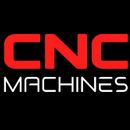Manufacturing PMI Hits 48.7% in October 2025: Analyzing the Impact on CNC Machine Shops

October 2025 Manufacturing PMI Falls to 48.7% — Factories Still Searching for Momentum
The latest ISM® Manufacturing PMI® report indicates a dip in U.S. manufacturing activity for October 2025, charting at 48.7%, a decrease from 49.1% in September. This marks the eighth consecutive month of contraction, with manufacturers grappling with tariffs, weak demand, and swelling material costs.
While the broader economy keeps growing, the U.S. manufacturing landscape faces challenges — from declining new orders to persistent pricing pressures.
October Manufacturing Snapshot
| Category | Index | Trend | Direction |
|---|---|---|---|
| Manufacturing PMI® | 48.7 | ↓ 0.4 | Contracting |
| New Orders | 49.4 | ↑ 0.5 | Contracting |
| Production | 48.2 | ↓ 2.8 | Contracting |
| Employment | 46.0 | ↑ 0.7 | Contracting |
| Supplier Deliveries | 54.2 | ↑ 1.6 | Slower |
| Prices | 58.0 | ↓ 3.9 | Still Rising |
With a PMI under 50 indicating contraction, the sector hasn't witnessed solid growth since early spring.
What’s Behind the Dip
Demand remains tepid across sectors. Reports from manufacturers cite cancelled orders, escalating input costs, and buyer apprehension due to tariffs and future pricing uncertainties.
- Tariffs continue to reshape supply chains, with manufacturers finding domestic alternatives scarce despite higher import prices.
- Production and hiring are scaling back, with firms reducing headcounts and stalling expansions.
- Supplier deliveries are delayed, more due to logistical challenges and cost pressures than heightened demand.
- Prices remain elevated, especially for steel, aluminum, and copper, unsettling machine builders and fabricators.
Industries Showing Resilience
Not all sectors are contracting. Some industries remain robust:
- Transportation Equipment — buoyed by consistent demand in aerospace and aftermarket automotive.
- Food, Beverage & Tobacco Products — driven by strong consumer consumption.
Conversely, sectors such as machinery, electronics, chemicals, and fabricated metals continue facing the brunt of tariffs and export market uncertainties.
What Manufacturers Are Saying
“Tariffs continue to hit hard — our imported components just aren’t made domestically.” — Machinery Manufacturer
“Automotive OEM orders are down for the third straight month.” — Fabricated Metals Producer
“It’s getting harder to plan. Prices change week to week.” — Chemical Products Executive
In essence, manufacturers remain cautious, maintaining a 'hold tight' strategy as they await tariff resolutions and a demand surge.
Tariffs and Trade Tensions Reshape Dynamics
Global trade stands as a wildcard.
- China’s export restrictions on rare earths and semiconductors disrupt electronics and automotive supply lines.
- New U.S. tariffs on commercial vehicles, effective in November, may further dampen transport-related orders.
- Agricultural equipment demand dwindles as overseas buyers hesitate due to retaliatory tariffs.
These shifts are prompting companies to revisit sourcing strategies, though reshoring remains costly and slow.
Signs of a Fragile Bottom
Amidst the gloom, there are hopeful hints. Customer inventories remain low, a potential precursor for a production surge should demand revitalize. Similarly, while new order figures remain a contraction, a slight improvement hints that the worst might be behind us.
cncmachines.com Takeaway
The October 2025 PMI, the industrial economy is in transition not collapsing, but cooling and shiftitng. For manufacturers, emphasis is on achieving labor efficiency, automation, and agility.
Companies investing in advanced technologies, streamlined workflows, and comprehensive digital supply chain oversight will be best poised for a comeback once order volumes rise again in 2026.


